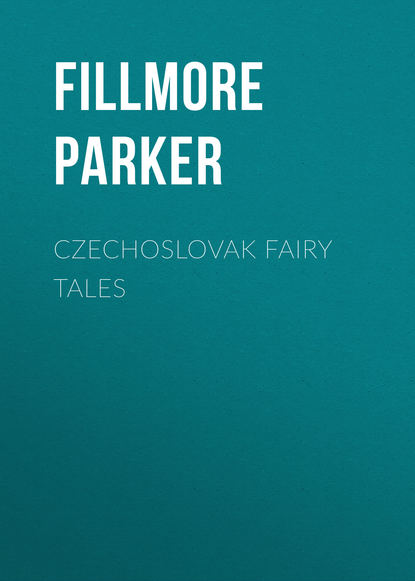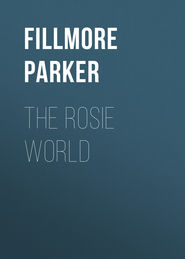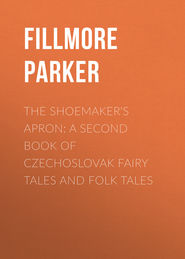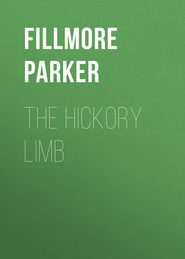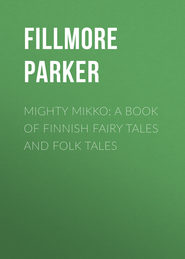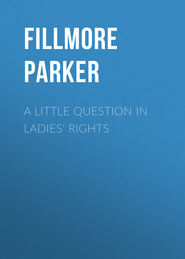По всем вопросам обращайтесь на: info@litportal.ru
(©) 2003-2024.
✖
Czechoslovak Fairy Tales
Настройки чтения
Размер шрифта
Высота строк
Поля
He rode into the yard, tied his horse, and came into the cottage.
“Good day, Dobrunka,” he said, speaking very gently and very respectfully.
Dobrunka’s heart was beating so fast that she feared it would jump out of her body. Her mother was in the woods gathering fagots, so she was again alone with him. She managed to return his greeting and to ask him to sit down. Then she went back to her spinning.
The young man came over to her and took her hand.
“How did you sleep, Dobrunka?”
“Very well, sir.”
“Did you dream?”
“Yes, I had a very strange dream.”
“Tell me about it. I can explain dreams very well.”
“But I can’t tell this dream to you,” Dobrunka said.
“Why not?”
“Because it’s about you.”
“That’s the very reason you ought to tell me,” the young man said.
He urged her and begged her until at last Dobrunka did tell him the dream.
“Well now,” he said, “that dream of yours except the part about the cat can be realized easily enough.”
Dobrunka laughed. “How could I ever become a fine lady?”
“By marrying me,” the young man said.
Dobrunka blushed. “Now, sir, you are joking.”
“No, Dobrunka, this is no joke. I really mean it. I came back this morning to ask you to marry me. Will you?”
Dobrunka was too surprised to speak, but when the young man took her hand she did not withdraw it.
Just then the old woman came in. The young man greeted her and without any delay declared his intentions. He said he loved Dobrunka and wished to make her his wife and that all he and Dobrunka were waiting for was the mother’s consent.
“I have my own house,” he added, “and am well able to take care of a wife. And for you too, dear mother, there will always be room in my house and at my table.”
The old woman listened to all he had to say and then very promptly gave her blessing.
“Then, my dear one,” the young man said to Dobrunka, “go back to your spinning and when you have spun enough for your wedding shift, I shall come for you.”
He kissed her, gave his hand to her mother, and, springing on his horse, rode away.
From that time the old woman treated Dobrunka more kindly. She even went so far as to spend on Dobrunka a little of the money the young man had given them, but most of it, of course, went for clothes for Zloboha.
But in those happy days Dobrunka wasn’t worrying about anything as unimportant as money. She sat at her wheel and spun away thinking all the while of her fine young lover. Time sped quickly and before she knew it she had spun enough for her wedding shift.
The very day she was finished her lover came. She heard the trample of his horse and ran out to meet him.
“Have you spun enough for your wedding shift?” he asked her as he took her to his heart.
“Yes,” Dobrunka said, “I have.”
“Then you can ride away with me this moment.”
“This moment!” Dobrunka gasped. “Why so quickly?”
“It has to be, my dear one. Tomorrow I go off to war and want you to take my place at home. Then when I come back you’ll be there to greet me as my wife.”
“But what will my mother say to this?”
“She will have to consent.”
They went into the cottage and spoke to the old woman. She was far from pleased with this arrangement, for she had worked out a very different plan in her mind. But what could she do? A rich young bridegroom always has his own way. So she hid her disappointment with a false smile and gave them her blessing.
Then the young man said to her: “Get your things together, mother, and follow Dobrunka, for I don’t want her to be lonely while I’m gone. When you get to the city, go to the palace and ask for Dobromil. The people there will tell you where to go.”
Dobrunka with tears streaming down her cheeks bid her mother good-by. Dobromil lifted her to the saddle in front of him and away they went like the wind.
The town was in great excitement. There was much hurrying to and fro as the troops were being put in readiness for the morrow. A crowd had gathered at the palace gates and as a young man came galloping up, holding in front of him a lady lovely as the day, the shout went up:
“Here he is! Here he is!”
The people in the courtyard took up the cry and as Dobromil rode through the gate all of them with one voice shouted out:
“Long live our beautiful queen! Long live our noble king!”
Dobrunka was struck with amazement.
“Are you really the king, Dobromil?” she asked, looking into his proud and happy face.
“Yes,” he said. “Aren’t you glad that I am?”
“I love you,” Dobrunka said, “and so whatever you are makes no difference to me. But why did you deceive me?”
“I did not deceive you. I told you that your dream would be realized if you took me for your husband.”
In those early times marriage was a simple affair. When a man and woman loved each other and their parents consented to their union, they were looked upon as married. So Dobromil now was able to present Dobrunka to his people as his wife.
There was great rejoicing, music played, and there was feasting and drinking in the banquet hall until dawn. The next day the young husband kissed his lovely bride farewell and rode off to war.
Left alone the young queen strayed through the magnificent palace like a lost lamb. She would have felt more at home rambling through the woods and awaiting the return of her husband in a little cottage than here where she was a lonely stranger. Yet she was not a stranger long, for within half a day she had won every heart by her sweetness and goodness.





